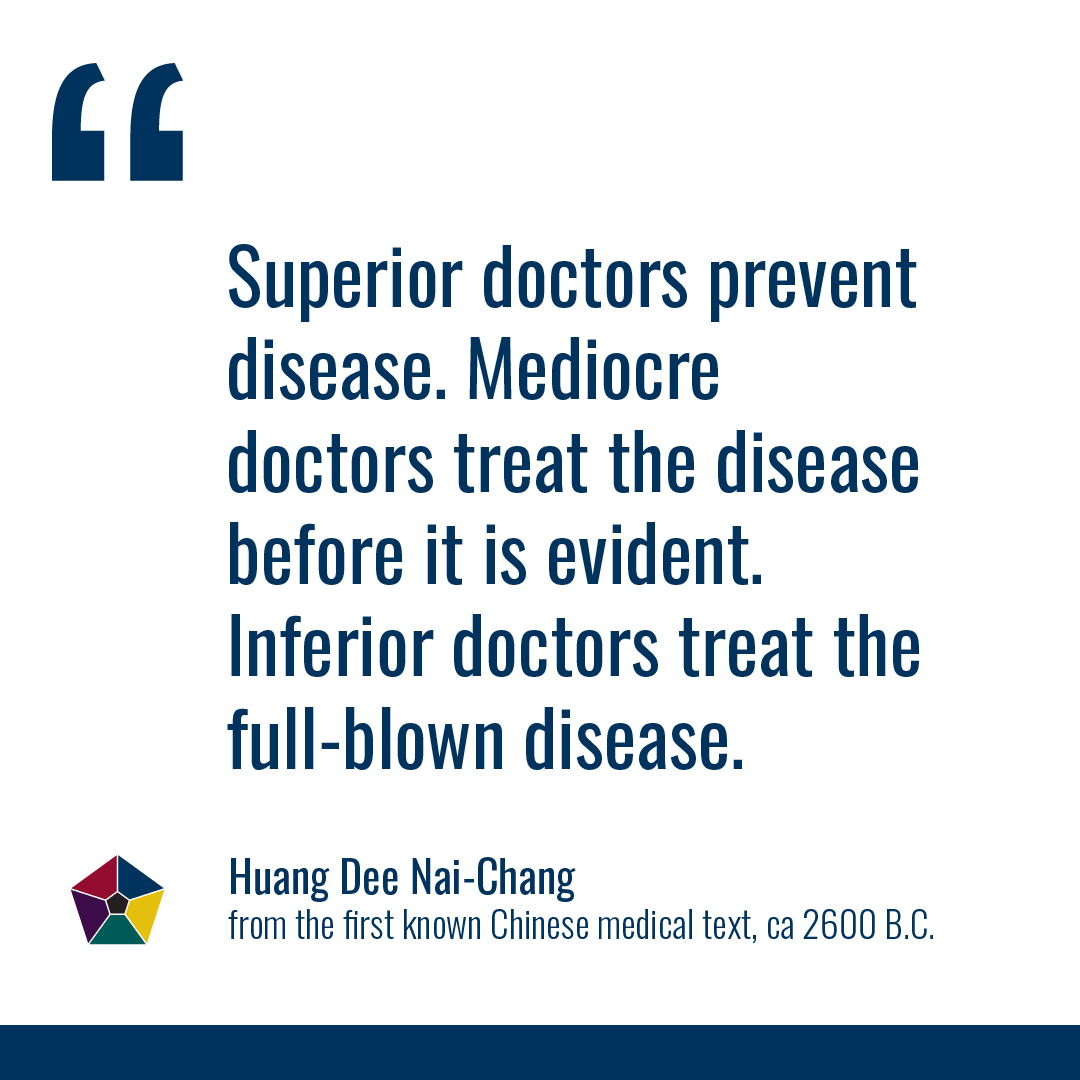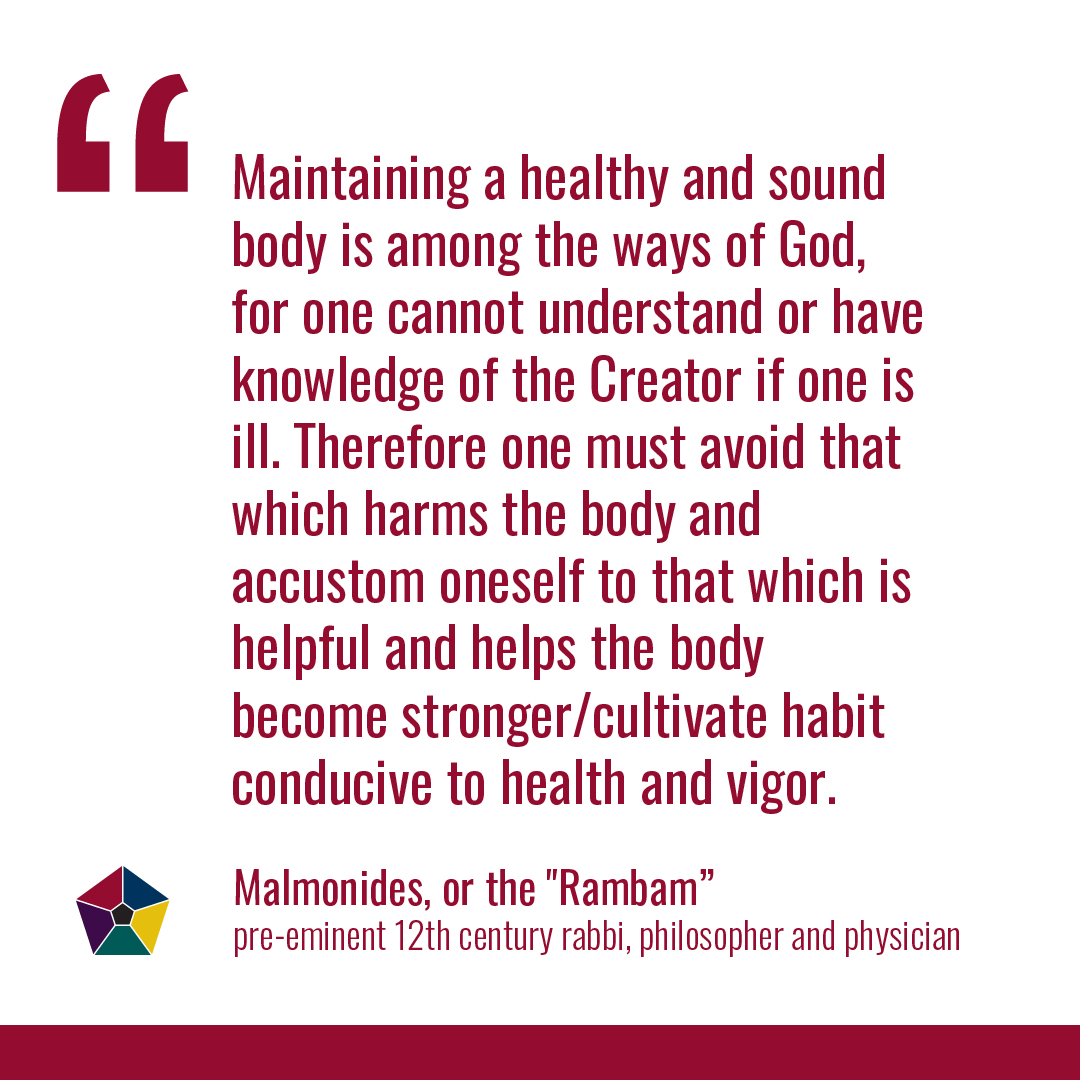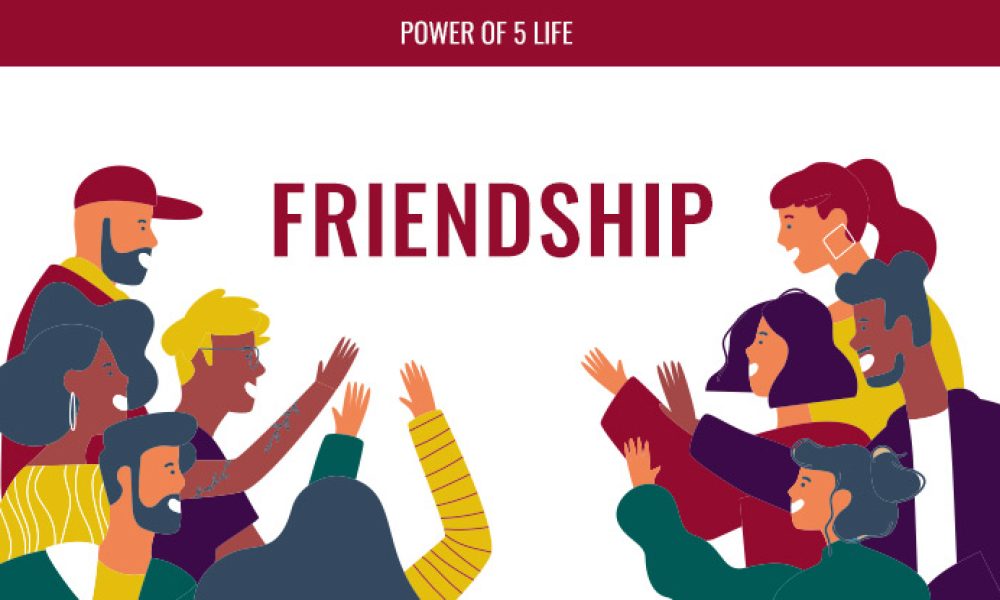We’ve known about the importance of friendship for thousands of years; keep it going. -David Bernstein, MD
With the approach of summer and more hours of daylight to enjoy, let’s focus on friendships. Reflected in the final “S” in the Power of 5 formula – Sex/Socialization – this “S” relates to the need and benefits of having connections and friends in our lives.
Friendship Visionaries
There have been visionaries throughout time who have had a major influence on our society. One of the oldest is Huang Dee, an ancient Chinese emperor and physician. In 2600 B.C., he proposed the importance of preventive medicine and healthcare.

In the 12th century, Rabbi Moses Maimonides, who is also a noted physician, proposed that what we eat and how we take care of ourselves are important concepts in our lives and in holiness.

Even Benjamin Franklin in the times of the founding of our country made suggestions …

None of these visionaries could have predicted the technological advancements and the associated perils facing society today or their impact on friendships and relationships.
Aristotle’s View on Friendships
Recently I was reading an article in “The Conversation” Journal Three Lessons from Aristotle on Friendship written by Emily Katz, associate professor and scholar of ancient Greek philosophy at Michigan State University. In this article, she describes how Aristotle discussed the importance of friendship in ancient Greek society.
Aristotle described three main components of friendship. I have included his thoughts because even though he wrote about this subject in the 4th century B.C., his comments apply to our society today. Only by coincidence (or great minds think alike), I included them in my Power of 5 formula. He wrote that “no one would choose to live without friends.”
In the article composed by Emily Katz, she describes three lessons Aristotle teaches about friendship.
- Friendships are reciprocal and recognized: in contrast to family relationships, friendship only exists if it is acknowledged by both parties
- Three kinds of friendship: utility-based, pleasure-based, and character-based
- Friendship is like fitness: it is a state or disposition that must be maintained by doing things together
Technology’s Effect on Friendships
Communication plays a major role in how friendships are established and maintained. Consider the impact Alexander Graham Bell had with his invention of the telephone. Then the advancement of the internet which has enabled us to remain even more connected.
As technology has advanced further, I have to wonder about the benefits and rewards of having portable devices that many of us use to remain connected, but not in the same way as before. Now, we can send brief messages that interrupt our daily flow of thoughts. People can date and converse without the intimacy previously considered an important component in developing a solid relationship. Just like you, I have seen and experienced the use of mobile devices that interfere with conversation at family and friends’ gatherings.
The internet and technology have provided us with some very beneficial options to maintain friendships. I too have found them very useful personally. With services such as Zoom, Teams, etc., we can connect with almost anyone around the world. We can have face-to-face conversations and view some of each other’s body language. Clearly it does not replace the connections of being together, but it is better than losing a friendship or connection.
I recommend reading the above-mentioned article by Emily Katz. Also, I implore you to consider how you can rekindle friendships that you thought may have been lost and maintain friendships already established.
Friendships, connections and socialization are all part of my Power of 5 formula. They provide the groundwork for avoiding loneliness, which is a significant health risk.
To a long and healthy life,
David Bernstein, MD



